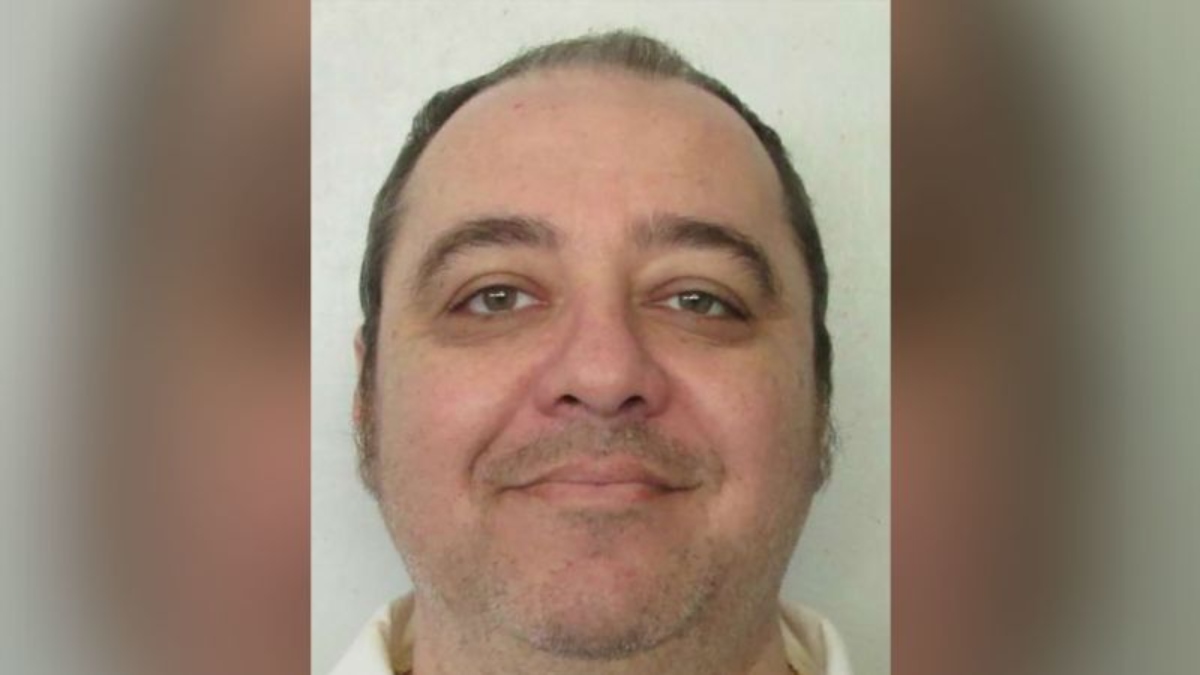(Trends Wide) — The Supreme Court of the United States ruled this Monday in favor of a man sentenced to death in Alabama, whose execution by lethal injection was suspended at the last minute by the state and who has asked to die with nitrogen.
Alabama asked the high court to intervene, arguing that a lower court violated Supreme Court precedent that requires an inmate to show that a proposed alternative method is not only “feasible” but can be “easily applied.”
This Monday, the court denied the argument. Justices Clarence Thomas and Samuel Alito dissented.
The court’s decision comes after justices were split 6-3 earlier in the legislature to allow the execution of Kenneth Smith by lethal injection. The execution was abruptly called off that night, after the state failed to correctly place the IV before the execution order expired.

Kenneth Eugene Smith. (Credit: Alabama Department of Corrections)
Smith was convicted of the 1988 murder, along with an accomplice, of Elizabeth Dorlene Sennett in a murder-for-hire plot. They were both hired by Sennett’s husband, who was having an extramarital affair and had taken out a large insurance policy against his wife.
The case comes after the state paused executions last fall and conducted a review of its execution process after problems with multiple lethal injections became national news. In late February, Republican Governor Kay Ivey called for executions to resume once the review was completed.
Smith argued that the state should not try to execute him again by lethal injection, but rather use nitrogen. He won the case in the first instance.
Alabama asked the Supreme Court to overturn that decision, noting that although the state legislature approved the use of nitrogen, the state has not yet finalized the protocols.
(Trends Wide) — The Supreme Court of the United States ruled this Monday in favor of a man sentenced to death in Alabama, whose execution by lethal injection was suspended at the last minute by the state and who has asked to die with nitrogen.
Alabama asked the high court to intervene, arguing that a lower court violated Supreme Court precedent that requires an inmate to show that a proposed alternative method is not only “feasible” but can be “easily applied.”
This Monday, the court denied the argument. Justices Clarence Thomas and Samuel Alito dissented.
The court’s decision comes after justices were split 6-3 earlier in the legislature to allow the execution of Kenneth Smith by lethal injection. The execution was abruptly called off that night, after the state failed to correctly place the IV before the execution order expired.

Kenneth Eugene Smith. (Credit: Alabama Department of Corrections)
Smith was convicted of the 1988 murder, along with an accomplice, of Elizabeth Dorlene Sennett in a murder-for-hire plot. They were both hired by Sennett’s husband, who was having an extramarital affair and had taken out a large insurance policy against his wife.
The case comes after the state paused executions last fall and conducted a review of its execution process after problems with multiple lethal injections became national news. In late February, Republican Governor Kay Ivey called for executions to resume once the review was completed.
Smith argued that the state should not try to execute him again by lethal injection, but rather use nitrogen. He won the case in the first instance.
Alabama asked the Supreme Court to overturn that decision, noting that although the state legislature approved the use of nitrogen, the state has not yet finalized the protocols.



